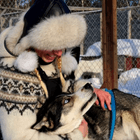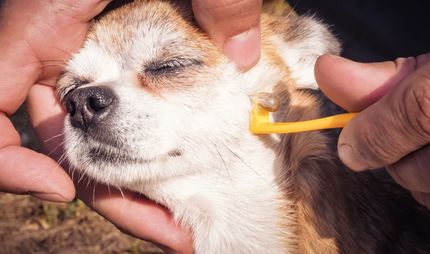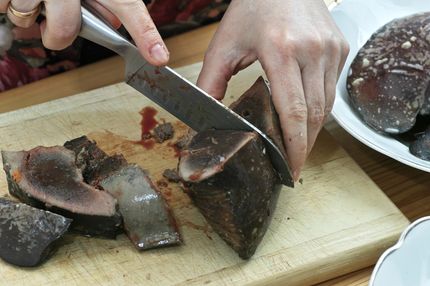Before we look specifically at puppy food, I would like to give you an overview of the basics of dog nutrition. Dogs, big or small, young or old, need a balanced diet to help them stay healthy and active. A typical dog diet is made up of proteins, fats, carbohydrates, vitamins and minerals. Proteins are important for building muscle, fats provide energy and support the absorption of fat-soluble vitamins, and carbohydrates provide additional energy. Vitamins and minerals are essential for numerous bodily functions.
Why is puppy food different?
Now to the heart of the matter: puppy food. Puppies grow quickly and therefore need food that meets their specific nutritional needs. Puppy food differs from food for adult dogs in several important ways:
- Higher protein content: puppies need more protein to support their rapid growth and muscle development.
- More calories: Because of their rapid growth and high energy requirements, puppies need a higher calorie food.
- Balanced nutrients: Puppy food contains a balance of calcium and phosphorus to ensure healthy bone growth.

Important vitamins in puppy food and their importance
Puppy food is also rich in certain vitamins that are essential for the puppy's development:
- Vitamin A: Important for vision and the immune system.
- B vitamins: Support the metabolism and promote a healthy nervous system.
- Vitamin D: Essential for bone development and calcium absorption.
- Vitamin E: Serves as an antioxidant and supports the immune system.
How long should puppy food be fed?
A puppy's diet is a fundamental aspect of its development. Puppy food is specially formulated to meet the higher nutritional requirements during rapid growth. It contains more proteins, vitamins and minerals compared to adult food. The duration of feeding puppy food varies depending on the breed and size of the dog and is crucial for healthy development.
Smaller breeds
Smaller dog breeds such as Chihuahuas or Dachshunds reach their full size and maturity faster than larger breeds. As a rule, these dogs can be switched to adult food at the age of 9 to 12 months. During this phase, it is important to watch for signs of full development, such as the flattening of the growth curve and the development of an adult coat.
Medium to large breeds
Medium to large breeds such as Labrador Retrievers or Golden Retrievers need more time to reach their full size. For these dogs, it is recommended to keep the puppy food until they are about 12 to 18 months old. During this time they go through significant growth phases and adequate nutrition is crucial to avoid developmental problems.
Very large breeds
Very large breeds such as Great Danes or St. Bernards can take up to 24 months to reach full maturity. Due to their enormous growth and the associated stress on their bones and joints, it is particularly important to maintain their puppy food until they have finished growing. This ensures that they receive all the necessary nutrients for healthy bone and muscle development.
Switching to adult food
Switching from puppy food to adult food is a critical step and should be done gradually and carefully to avoid gastrointestinal problems.
Gradual changeover
Start by gradually mixing the adult food into the puppy food over a period of about a week. Initially, the proportion of adult food should be low, around 25%, and then gradually increased over the days. After a week, the puppy should be completely switched to adult food. This gradual changeover helps the puppy's digestive system to get used to the new food.
Choosing the right adult food
Not every adult food is suitable for every dog. It is important to choose a food that meets the specific needs of the dog's breed, size and activity level. High-quality foods often contain specific ingredients that support joint health, maintain the coat and strengthen the immune system.
Monitoring health during the transition
Monitor your dog carefully during the transition period. Watch for signs of digestive upset such as diarrhea or vomiting and your dog's general well-being. If there are signs of intolerance or allergies, a vet should be consulted immediately.
The importance of the right diet
Nutrition is a crucial factor in a dog's health and well-being. A balanced diet during growth ensures a strong immune system, healthy bones and joints and a shiny coat. It is important to adapt the diet to the dog's growth and individual needs.
Advice from a vet
If you have any questions or uncertainties, it is always advisable to consult a vet. They can make specific recommendations based on the dog's breed, health and lifestyle.
Additional nutrients and supplements
In some cases, it may be necessary to supplement the diet with special supplements, especially if the dog has specific health needs. However, these should always be administered in consultation with a vet.
In conclusion, proper nutrition in the puppy phase is an investment in the long-term health and well-being of the dog. A well-nourished puppy has the best chance of a long, healthy and happy life.
I hope this detailed guide will help you understand the importance of feeding puppies appropriately and when the time is right to switch to adult food. Your puppy will thank you with a healthy and happy life!














